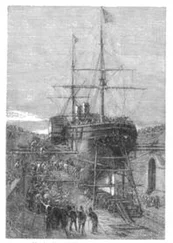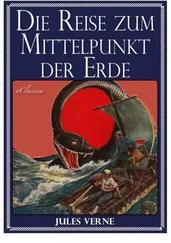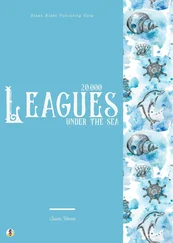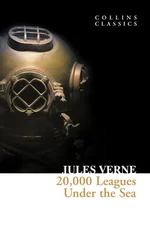Jules Verne - Twenty Thousand Leagues Under the Sea
Здесь есть возможность читать онлайн «Jules Verne - Twenty Thousand Leagues Under the Sea» — ознакомительный отрывок электронной книги совершенно бесплатно, а после прочтения отрывка купить полную версию. В некоторых случаях можно слушать аудио, скачать через торрент в формате fb2 и присутствует краткое содержание. Жанр: sf_writing, на английском языке. Описание произведения, (предисловие) а так же отзывы посетителей доступны на портале библиотеки ЛибКат.
- Название:Twenty Thousand Leagues Under the Sea
- Автор:
- Жанр:
- Год:неизвестен
- ISBN:нет данных
- Рейтинг книги:5 / 5. Голосов: 2
-
Избранное:Добавить в избранное
- Отзывы:
-
Ваша оценка:
- 100
- 1
- 2
- 3
- 4
- 5
Twenty Thousand Leagues Under the Sea: краткое содержание, описание и аннотация
Предлагаем к чтению аннотацию, описание, краткое содержание или предисловие (зависит от того, что написал сам автор книги «Twenty Thousand Leagues Under the Sea»). Если вы не нашли необходимую информацию о книге — напишите в комментариях, мы постараемся отыскать её.
Twenty Thousand Leagues Under the Sea — читать онлайн ознакомительный отрывок
Ниже представлен текст книги, разбитый по страницам. Система сохранения места последней прочитанной страницы, позволяет с удобством читать онлайн бесплатно книгу «Twenty Thousand Leagues Under the Sea», без необходимости каждый раз заново искать на чём Вы остановились. Поставьте закладку, и сможете в любой момент перейти на страницу, на которой закончили чтение.
Интервал:
Закладка:
"And the means of getting free?" I asked.
"It is to use the Rouquayrol apparatus, invented by two of your own countrymen, which I have brought to perfection for my own use, and which will allow you to risk yourself under these new physiological conditions, without any organ whatever suffering. It consists of a reservoir of thick iron plates, in which I store the air under a pressure of fifty atmospheres. This reservoir is fixed on the back by means of braces, like a soldier's knapsack. Its upper part forms a box in which the air is kept by means of a bellows, and therefore cannot escape unless at its normal tension. In the Rouquayrol apparatus such as we use, two India-rubber pipes leave this box and join a sort of tent which holds the nose and mouth; one is to introduce fresh air, the other to let out the foul, and the tongue closes one or the other according to the wants of the respirator. But I, in encountering great pressures at the bottom of the sea, was obliged to shut my head, like that of a diver, in a ball of copper; and it is to this ball of copper that the two pipes, the inspirator and the expirator, open."
"Perfectly, Captain Nemo; but the air that you carry with you must soon be used; when it only contains fifteen per cent. of oxygen, it is no longer fit to breathe."
"Right! But I told you, M. Aronnax, that the pumps of the Nautilus allow me to store the air under considerable pressure; and on those conditions, the reservoir of the apparatus can furnish breathable air for nine or ten hours."
"I have no further objections to make," I answered. "I will only ask you one thing, captain-how can you light your road at the bottom of the sea?"
"With the Ruhmkorff apparatus, M. Aronnax; one is carried on the back, the other is fastened to the waist. It is composed of a Bunsen pile, which I do not work with bichromate of potash, but with sodium. A wire is introduced which collects the electricity produced, and directs it toward a particularly made lantern. In this lantern is a spiral glass which contains a small quantity of carbonic gas. When the apparatus is at work, this gas becomes luminous, giving out a white and continuous light. Thus provided, I can breathe and I can see."
"Captain Nemo, to all my objections you make such crushing answers that I dare no longer doubt. But if I am forced to admit the Rouquayrol and Ruhmkorff apparatus, I must be allowed some reservations with regard to the gun I am to carry."
"But it is not a gun for powder," answered the captain.
"Then it is an air-gun."
"Doubtless! How would you have me manufacture gunpowder on board, without either saltpeter, sulphur, or charcoal?"
"Besides," I added, "to fire under water in a medium eight hundred and fifty-five times denser than the air, we must conquer very considerable resistance."
"That would be no difficulty. There exist guns, according to Fulton, perfected in England by Philip Coles and Burley, in France by Furcy, and in Italy by Landi, which are furnished with a peculiar system of closing, which can fire under these conditions. But I repeat, having no powder, I use air under great pressure, which the pumps of the Nautilus furnish abundantly."
"But this air must be rapidly used?"
"Well, have I not my Rouquayrol reservoir, which can furnish it at need? A tap is all that is required. Besides, M. Aronnax, you must see yourself that during our submarine hunt we can spend but little air and but few balls."
"But it seems to me that in this twilight, and in the midst of this fluid, which is very dense compared with the atmosphere, shots could not go far, nor easily prove mortal."
"Sir, on the contrary, with this gun every blow is mortal; and however lightly the animal is touched, it falls as if struck by a thunderbolt."
"Why?"
"Because the balls sent by this gun are not ordinary balls, but little cases of glass (invented by Leniebroek, an Austrian chemist), of which I have a large supply. These glass cases are covered with a case of steel, and weighted with a pellet of lead; they are real Leyden bottles, into which the electricity is forced to a very high tension. With the slightest shock they are discharged, and the animal, however strong it may be, falls dead. I must tell you that these cases are size number four, and that the charge for an ordinary gun would be ten."
"I will argue no longer," I replied, rising from the table; "I have nothing left me but to take my gun. At all events, I will go where you go."
Captain Nemo then led me aft; and in passing before Ned and Conseil's cabin, I called my two companions, who followed immediately. We then came to a kind of cell near the machinery-room, in which we were to put on our walking-dress.
| Go to Contents |
This cell was, to speak correctly, the arsenal and wardrobe of the Nautilus. A dozen diving apparatus hung from the partition, waiting our use.
Ned Land, on seeing them, showed evident repugnance to dress himself in one.
"But, my worthy Ned, the forests of the island of Crespo are nothing but submarine forests."
"Good!" said the disappointed harpooner, who saw his dreams of fresh meat fade away. "And you, M. Aronnax, are you going to dress yourself in those clothes?"
"There is no alternative, Master Ned."
"As you please, sir," replied the harpooner, shrugging his shoulders; "but as for me, unless I am forced, I will never get into one."
"No one will force you, Master Ned," said Captain Nemo.
"Is Conseil going to risk it?" asked Ned.
"I follow my master wherever he goes," replied Conseil.
At the captain's call two of the ship's crew came to help us to dress in these heavy and impervious clothes, made of India-rubber without seam, and constructed expressly to resist considerable pressure. One would have thought it a suit of armor, both supple and resisting. This suit formed trousers and waistcoat. The trousers were finished off with thick boots, weighted with heavy leaden soles. The texture of the waistcoat was held together by bands of copper, which crossed the chest, protecting it from the great pressure of the water, and leaving the lungs free to act; the sleeves ended in gloves, which in no way restrained the movement of the hands. There was a vast difference noticeable between these consummate apparatus and the old cork breastplates, jackets, and other contrivances in vogue during the eighteenth century.
Captain Nemo and one of his companions (a sort of Hercules, who must have possessed great strength), Conseil, and myself, were soon enveloped in the dresses. There remained nothing more to be done but to inclose our heads in the metal box. But before proceeding to this operation, I asked the captain's permission to examine the guns we were to carry.
One of the Nautilus men gave me a simple gun, the butt end of which, made of steel hollow in the center, was rather large. It served as a reservoir for compressed air, which a valve worked by a spring allowed to escape into a metal tube. A box of projectiles, in a groove, in the thickness of the butt end, contained about twenty of these electric balls, which by means of a spring were forced into the barrel of the gun. As soon as one shot was fired, another was ready.
"Captain Nemo," said I, "this arm is perfect, and easily handled; I only ask to be allowed to try it. But how shall we gain the bottom of the sea?"
"At this moment, professor, the Nautilus is stranded in five fathoms, and we have nothing to do but to start."
"But how shall we get off?"
"You shall see."
Captain Nemo thrust his head into the helmet; Conseil and I did the same, not without hearing an ironical "Good sport!" from the Canadian. The upper part of our dress terminated in a copper collar upon which was screwed the metal helmet. Three holes, protected by thick glass, allowed us to see in all directions, by simply turning our heads in the interior of the head-dress. As soon as it was in position, the Rouquayrol apparatus on our backs began to act; and, for my part, I could breathe with ease.
Читать дальшеИнтервал:
Закладка:
Похожие книги на «Twenty Thousand Leagues Under the Sea»
Представляем Вашему вниманию похожие книги на «Twenty Thousand Leagues Under the Sea» списком для выбора. Мы отобрали схожую по названию и смыслу литературу в надежде предоставить читателям больше вариантов отыскать новые, интересные, ещё непрочитанные произведения.
Обсуждение, отзывы о книге «Twenty Thousand Leagues Under the Sea» и просто собственные мнения читателей. Оставьте ваши комментарии, напишите, что Вы думаете о произведении, его смысле или главных героях. Укажите что конкретно понравилось, а что нет, и почему Вы так считаете.












